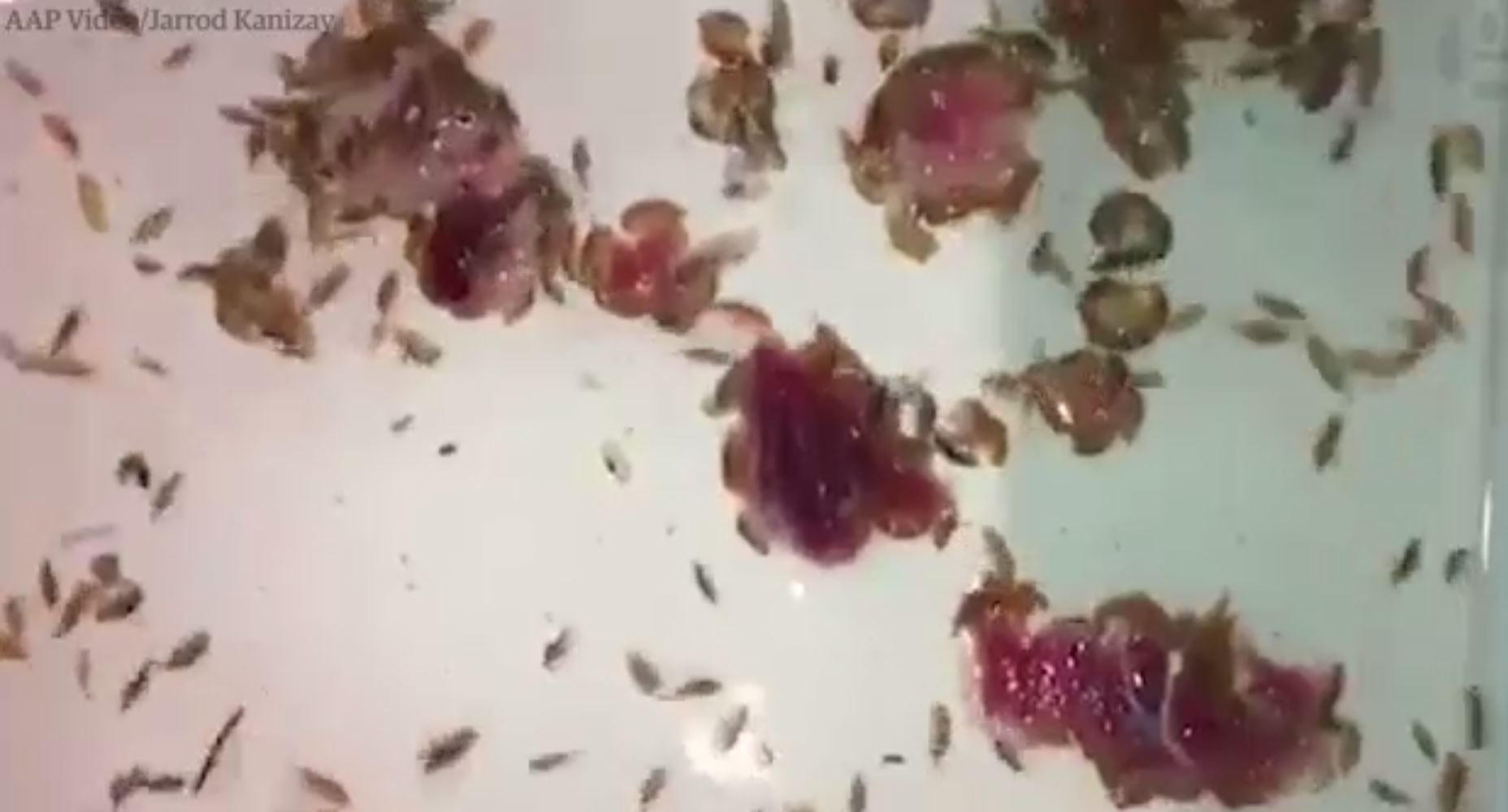Teenage boy left with 'profusely bleeding legs' after being eaten by 'tiny sea creatures'
'My dad gave me this funny stare and I gave him a stare because we both just had no clue what was going on'
Your support helps us to tell the story
From reproductive rights to climate change to Big Tech, The Independent is on the ground when the story is developing. Whether it's investigating the financials of Elon Musk's pro-Trump PAC or producing our latest documentary, 'The A Word', which shines a light on the American women fighting for reproductive rights, we know how important it is to parse out the facts from the messaging.
At such a critical moment in US history, we need reporters on the ground. Your donation allows us to keep sending journalists to speak to both sides of the story.
The Independent is trusted by Americans across the entire political spectrum. And unlike many other quality news outlets, we choose not to lock Americans out of our reporting and analysis with paywalls. We believe quality journalism should be available to everyone, paid for by those who can afford it.
Your support makes all the difference.A 16-year-old boy was left with “profusely bleeding legs” after being bitten by what is believed to have been a swarm of tiny carnivorous sea creatures in Australia.
Sam Kanizay went to Dendy Street beach in Brighton, Melbourne, following a game of football, and entered the water only to feel a tingling sensation.
“I wasn’t really thinking about being eaten,” he told ABC News.
However, when he came out of the water after about half an hour, he saw his legs were covered in blood.
He said: “I walked out of the water, saw what I thought was sand covering my ankles and lower calf so I just shook it off violently and it came off.
“By the time I walked across the sand, about 20 metres, to put my thongs on, I looked down and noticed I had blood all over my ankles and feet.
“I didn’t really know what to think of it, it was a bit of a shock. A bit of a random thing to see.”
The bleeding had not stopped by the time he had walked home, where his father, Jarrod, was taken aback by the state of his son’s legs.
“My dad gave me this funny stare and I gave him a stare because we both just had no clue what was going on,” Sam said.

His father could not stop the heavy bleeding, which came from small holes on the lower part of his leg, and took his son to hospital.
He was given antibiotics, and later taken to a different hospital for further tests, but his legs continued to bleed into the early hours of Sunday.
The cause is not known, but some have said sea lice are to blame.
According to experts at the Museums Victoria, they are “active at night when they swim, they can reduce a dead fish to a skeleton in a few hours. Although usually resting buried in sand they are active swimmers when searching for food.”
Marine biologist Jeff Weir, who suffered a similar incident while on a dive, told ABC News he thinks it was a type of amphipod, a small shrimp-shaped crustacean.
Sam is expected to make a full recovery without any permanent scarring.
The following night, Jarrod went back to the beach with a net filled with raw red meat and caught the creatures he believes were responsible for his son’s injuries.
“I’d hate to see anyone else going through this. If we can prevent it for anyone else, that’s the aim of us talking to people,” Sam’s mother, Jane Kanizay said.

Join our commenting forum
Join thought-provoking conversations, follow other Independent readers and see their replies
Comments